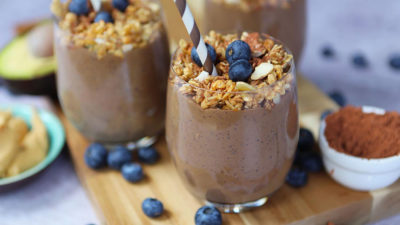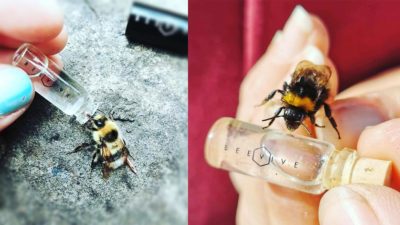Honey hype

News headlines today say that honey may be a better treatment for coughs and sore throats than antibiotics – which are usually useless for treating a cough! So is there any truth behind the hype for honey?
The study the headlines are based on says that the majority of upper respiratory tract infections (URTIs) are viral, so antibiotics are both ineffective and inappropriate. The fact is, a turnip might be better for coughs and sore throats than antibiotics!
What the review actually found was that in some studies, honey appeared to help more than antihistamines, expectorants, cough suppressants and painkillers. The results were quite variable and where some data was missing, they say they estimated values. So a very mixed bag really.
Because the nerve fibres that initiate a cough and those that help us taste sweetness are located close together, it has been suggested that honey can induce an interaction between the fibres that suppress a cough. All sweet substances can therefore have a sedative effect on cough receptors, so, maple syrup, golden syrup or date syrup could be a better alternative that doesn’t involve cruelty to bees. Many websites recommend maple syrup in place of honey for the relief of coughs in young children.
Honey is not necessarily the super-food it is billed as either. Most supermarket honey is processed; filtered to remove pollen and/or heat-treated to keep it in liquid form and destroy pathogens. This diminishes certain properties in honey such as enzyme activity. Basically, it’s just a sweet syrup.
Can honey ease a cough?
Cochrane Reviews are internationally recognised as the highest standard in evidence-based health care, often referred to as the gold standard. For chronic cough and acute cough, a 2009 Cochrane review found no evidence for or against the use of honey. They said that lozenges or honey are not recommended when managing very young children as lozenges are a potential choking hazard and honey can cause infant botulism.
A 2014 Cochrane review found that honey may be better for the relief of a cough in children than either no treatment, a placebo or diphenhydramine (an antihistamine), but honey was no better than dextromethorphan (a cough suppressant). They concluded there is no strong evidence for or against the use of honey for treating coughs. However, a number of children in the honey group did experience adverse events including nervousness, insomnia and hyperactivity.
A couple of small studies, both funded by Honey Boards, suggested that honey may work better than certain cough medicines in easing a cough. The methodology of these studies has been questioned.
Large, high-quality placebo-controlled trials are needed to draw a firm conclusion about the efficacy of honey versus other syrups in helping relieve a cough. We recommend sticking to maple or date syrup and give the bees a break!
For more information see here.







